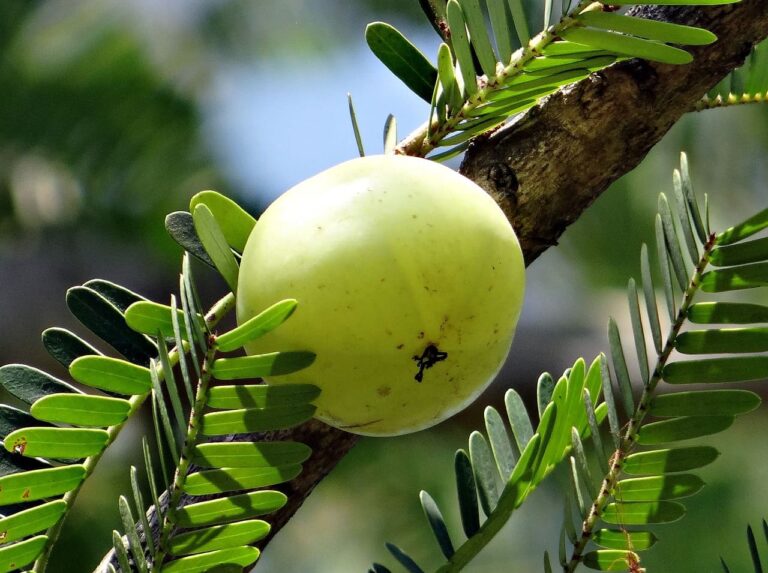
Table of Contents
ToggleHealth Benefits of Amla
The benefits of amla or Indian gooseberry are immensely excellent and regular consumption of it does wonders to the body. Reading this blog will surely be one of the great favors which you will do to your health and fitness education and by the end of this blog you will find it the most interesting blog you ever came across. Excited? Let’s get ahead!
Brief about Amla

Amla or Indian Gooseberry, whose scientific name is Phyllanthus emblica and sanskrit name is “Amlaki” which means “a sustainer” or ” a substance in which the goddess of prosperity resides”.
The benefits of amla are so powerful that it has been extensively used in the Indian Medicinal System for centuries and has a very prestigious place in Ayurveda, Unani and Siddha.
Amla is the richest form of vitamin C and has many phytochemicals like alkaloids, flavonoids, tannins, amino acids, etc., which has various properties like antioxidants, anticancer, anti-ageing, anti-diabetic, hypoglycemic, etc., which are proofs to its significance it possess.
Mind Boggling Facts about Amla
(1) The vitamin C content in Amla is 20 times the vitamin C content in orange, which means consuming one amla is equal to consuming 20 oranges.
(2) Amla has an antioxidant property which curbs the oxidative stress or free radical damage which is one of the main factors of causing diseases.
Now, the most amusing fact is this the foods which has this ability to kill free radicals are compared on the basis of a value which is known as ORAC(Oxygen-Radical Absorbance Capacity) value and Amla(1770) has almost the double the ORAC value of berries like Acai berry(997) and 17 times the value of pomegranate(105) which itself are renowned for high ORAC value. Incredible, isn’t it!
(3) Ancient Rishi Chyavana gained his rejuvenation and vitality at the age of 70 through a herbal concoction whose one of the major constituents was Amla and it is still used in India extensively as a dietary supplement known as Chyavanprash.
Mythological Story About Amla

According to Indian Mythology, when the Hindu god, Brahma started crying during a meditation of Vishnu, his tears fell down on earth which created the first tree to ever exist on this planet-the Amla tree. Yes, the first ever!
This is a pure indication of amla’s importance and explains its prestigious place in the Traditional Indian System of Medicine.
Benefits of Amla

1. Benefits of Amla for Digestive System

One of the great benefits of amla is that it helps to maintain the gut health of the body. Amla acts as a “Laxative” which means it mobilizes the stool or bowel movement and soothes a lot of digestion issues like acidity, constipation, etc.
It also helps in killing many intestinal bacteria and worms, protects gastrointestinal organs and increases the food absorption capacity of the intestine and strengthens it.
2. Benefits of Amla for Skin
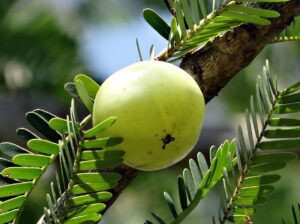
The benefits of amla are so immensely powerful that it is one of the most extensively used item in the skin care products due to its anti-inflammatory and antioxidant properties which soothes various skin conditions.
It also possesses properties like anti-ageing which prevents the breakdown of collagen, anti-melanogenesis and helps to protect the skin from harmful UVB-induced-oxidative stress.
Amla consumption enhances skin elasticity and hydration, reduces skin wrinkles and it is correlated to younger skin properties.
[NOTE:-The combination of amla(Indian gooseberry) and neem(Indian lilac) is extremely powerful for people suffering from skin conditions like acne and pimples.]
3. Benefits of Amla for Hair

The benefits of amla are not just limited to skin health but also they are very powerful to prevent multiple hair problems.
Just like skin products, hair products are also dominated with amla as an ingredient in it and it is used to make hair oils, shampoos, conditioners and tonics due to its high antioxidant and anti-inflammatory properties.
It also prevents hair conditions like premature greying of hair, baldness, etc. Also researches have shown amla reduces the effect of 5-alpha reductase enzyme which is the main reason for hair fall. 10 Mind-Blowing Benefits of Vitamin C
4. Longevity

One of the most amazing benefits of amla, is the effect on the longevity of an individual. The Indian Scriptures as well as the modern science today is claiming that regular consumption of amla has the capability to ensure a longer and healthier life due to the presence of the beneficial compounds in it.
Also in Ayurveda it is considered as a “Rasayana” which means it is a rejuvenating formulation which enhances your vitality, vim and vigour.
[NOTE:-A concoction of amla, ashwagandha, ghee and honey acts like a restorative and invigorator to the body, which means it provides strength and energy.]
5. Cardioprotective Potential

Research have clearly shown cardioprotective ability of amla, due to the presence of properties like antioxidant, anticoagulant, hypolipidemic, anti-atherogenic and so on which helps in preventing heart burn, GERD (Gastro Esophageal Reflux Disease) and other heart disorders.
A study published in the Journal of Cardiovascular and Thoracic Research reviewed 19 articles concerning the cardiovascular pharmacological effects of amla and found that amla influences various cardiovascular risk factors.
Moreover it prevents from doxorubicin and isoproterenol cardiotoxicity and improves vascular endothelial function in animal studies.
6. Controls Blood Pressure

Amla is extremely useful in regulating the blood pressure and immensely helps the people suffering with hypertension.
A research published in the journal, Evidence-Based Complementary and Alternative Medicine conducted a randomized, triple-blind, placebo-controlled 8-week study in which 81 patients (41 in the drug group and 40 in the placebo group) suffering from uncontrolled hypertension were tested.
The analysis was that amla reduced the systolic and diastolic blood pressure in the group who were taking antihypertensive drug more significantly than the placebo group.
7. Regulates Cholesterol Levels

Studies have found regular consumption of amla reduces the levels of triglycerides, LDL (Low Density Lipoprotein) cholesterol and increases the levels of HDL (High Density Lipoprotein) cholesterol.
A research published in the Journal of Pharmacology tested the efficacy of amla in type-II hyperlipidemia and out of 60 selected patients, 40 were treated with amla capsules (500 mg/day) 42 days and 20 were given simvastatin capsules (20 mg/day).
The conclusions were that amla produced significant hypolipidemic effect. Also a clinical trial reported that amla consumption for 2 weeks, decreased the total serum cholesterol levels in normal and hypercholesterolaemic men aged 35-55 years.
8. Anti-diabetic Effect

Amla is extremely helpful for diabetics patients due to its anti-diabetic and hypoglycemic properties which stabilizes blood sugar levels.
Clinical trials have shown explicit evidences of amla being a strong remedy for diabetic patients. One of them showed that amla powder reduced the blood glucose levels in diabetic patients after 21 days of the trial.
Another clinical trial indicated a similar outcome when diabetic patients were given 10 gm of amla powder per day for 90 days.
[NOTE:- A herbal concoction of karela (Bitter gourd), jamun (Black plum) and amla (Indian gooseberry) does wonders to the diabetic patients as it increases the insulin production of the body, regeneration of beta cells and decreases overall systematic inflammation.]
9. Neurological Protection

Amla has been shown to prevent and help in battling neurodegenerative disorders like parkinson, alzheimer, etc., and it is extensively used in Ayurveda for central nervous system disorders.
A study published in the journal, Annals of Neurosciences showed that amla consumption marked beneficial effects on the cognitive function of the individuals. It improved their learning power, memory and other cognitive functions.
10. Prevents Multiple Diseases

Amla has immunomodulatory properties because of which it strengthens the immune system and help fighting several diseases. Some of them are:
(1) Respiratory Issues
Respiratory disorders like bronchitis, asthma, etc., are often reduced through amla consumption and also it relieves the cough, cold and the ill-effect of smoking on the body.
[NOTE:- A mixture of amla and honey often soothes the dry cough.]
(2) Jaundice
A concoction of soaked munakka (Black grape raisins) and amla is very beneficial for people with jaundice.
(3) Eye Health
A concoction of amla juice and honey is extremely beneficial to maintain eye health.
(4) Anemia
Anemia is the deficiency of iron and iron absorption massively depends on the vitamin C levels. So, amla being immensely rich in vitamin C helps anemic people.
[NOTE:- A mixture of amla and neem juice is extremely beneficial for anemic people because neem is extremely rich in iron and amla is rich in vitamin C.]
(5) Reproductive Disorders
Amla also prevents many other diseases like gout, urinary issues and infections, piles, vaginal issues, dysentery, acts as a liver tonic and so on. Seeing the long list of diseases you might have gotten astonished to see amla’s capability to enhance the human body’s health.
Forms of Consumption of Amla
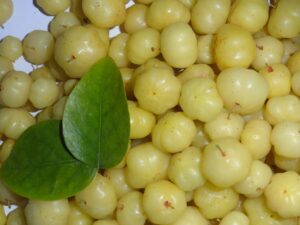
The main forms of oral consumption of amla, which are most easily available in the market are:
- Raw Amla
- Amla Juice
- Amla Candies
- Amla Powder
- Amla Murabba(Marmalade or Jams)
- Amla Pickle
Takeaway
Amla is a massively powerful herb whose regular consumption can do wonders to the human body. The properties which it possesses are extraordinary and proven by scientific studies as well.
FAQS(Frequently Asked Questions)
Q1. When should amla be consumed?
Ans. Amla or any other herb should be ideally consumed by an empty stomach early in the morning because of the following two reasons:
1) It ensures its best absorption in the body.
2) Not enough research has been held out which shows which foods hinder the absorption of it, if taken after meals.
Q2. How should amla juice be consumed by an average individual?
Ans. Amla is mostly consumed in the form of juices as it is easy to incorporate in one’s diet but you can take it in whichever form you find it comfortable. The recommended dosage for average individuals is 30ml of amla juice diluted with 30ml (equivalent amount of water) of water. But you can consult a doctor or physician to be extra sure and if you are suffering from any disease then doctor’s intervention is must.
If you are taking it in the raw form, then 1-2 amla will be enough.
[PRO TIP:-Amla combined with piperine(Black pepper) increases its bioavailability or absorption in the body. That is why you will find mostly high quality amla juices have piperine added in it].
Q3. Are there any side effects of consuming amla?
Ans. No, there are no side effects of consuming amla and everyone, including patients can have them but be sure that you are not consuming it in excess, which can aggravate issues in your body and to must take the guidance of doctor in case of any ailment you are suffering with.
Q4. How much raw amla is enough for an average individual per day?
Ans. Consuming 1-2 amla per day is enough for an average individual. However, the recommendation changes if you are suffering from any disease.
Q5. Can amla be consumed daily?
Ans. Yes, it can be safely consumed daily by anyone but ensure doctor consultancy in case of patients. A general thumb of rule for better results is to consume any herb for 2-3 months and then take a break of 15 days to 1 month and then you can continue taking the same herb if you wish to.
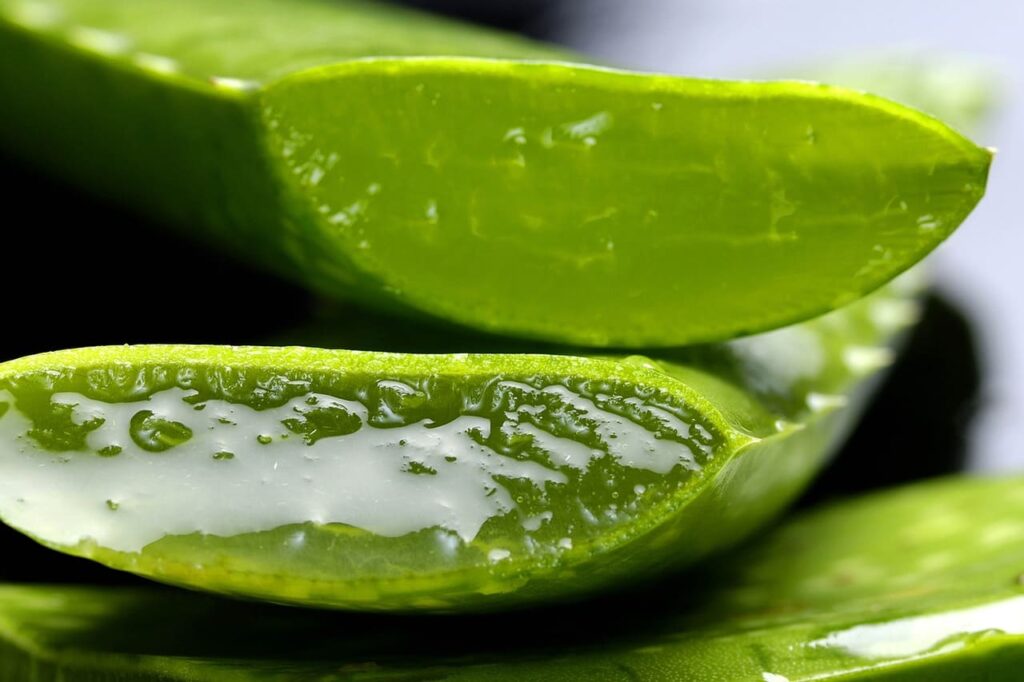



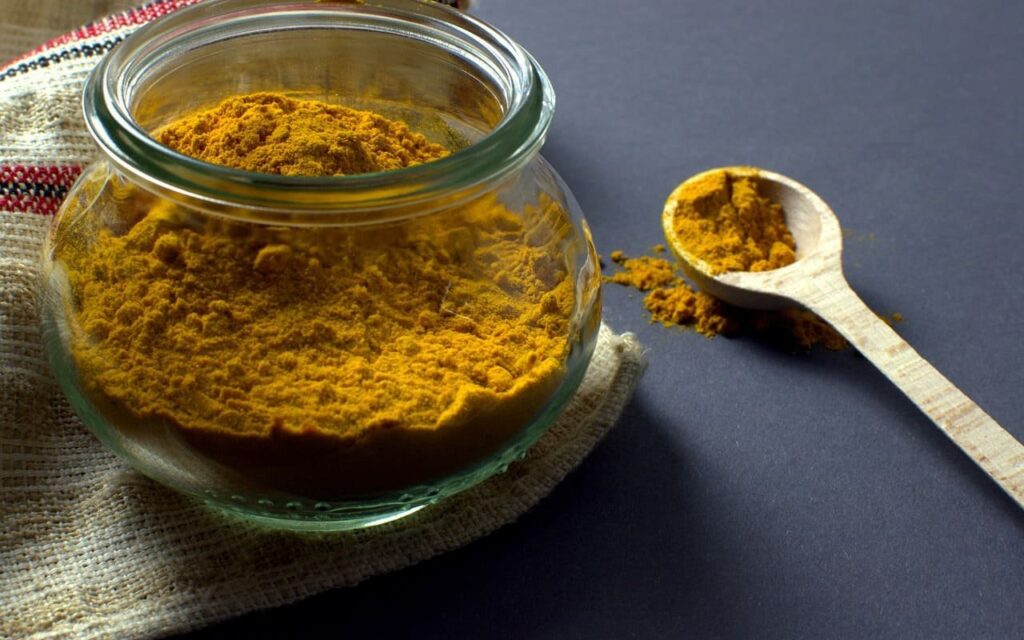

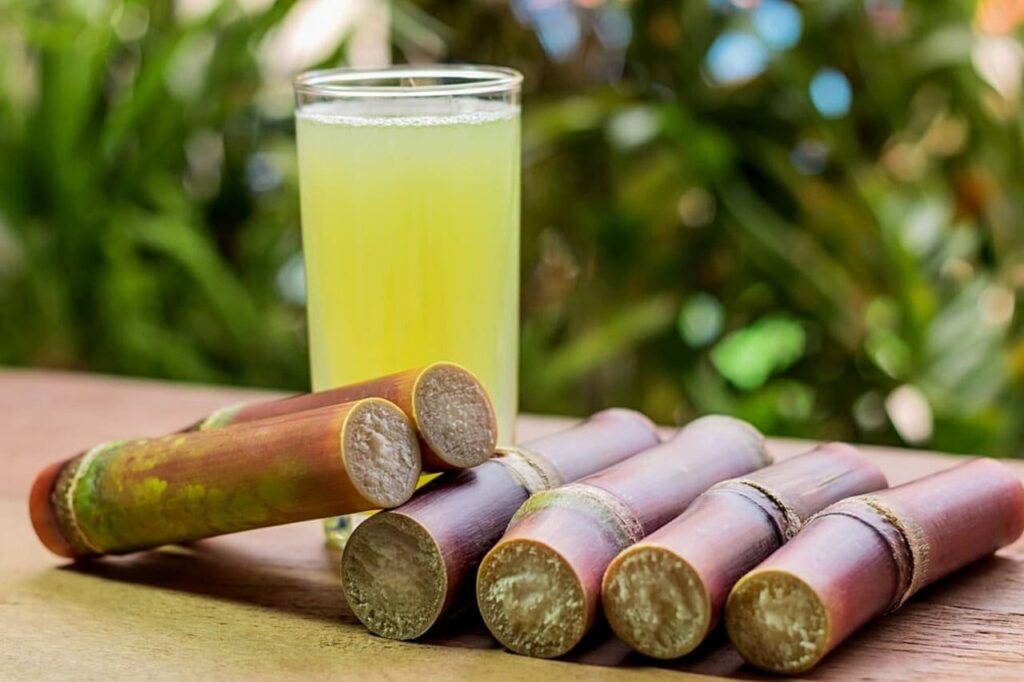



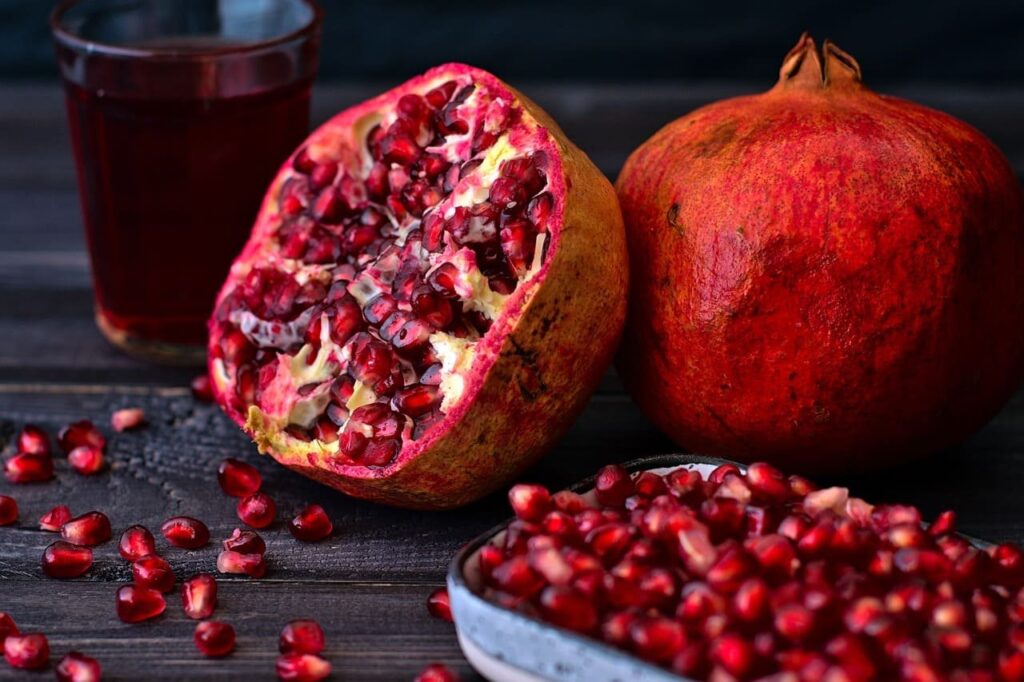





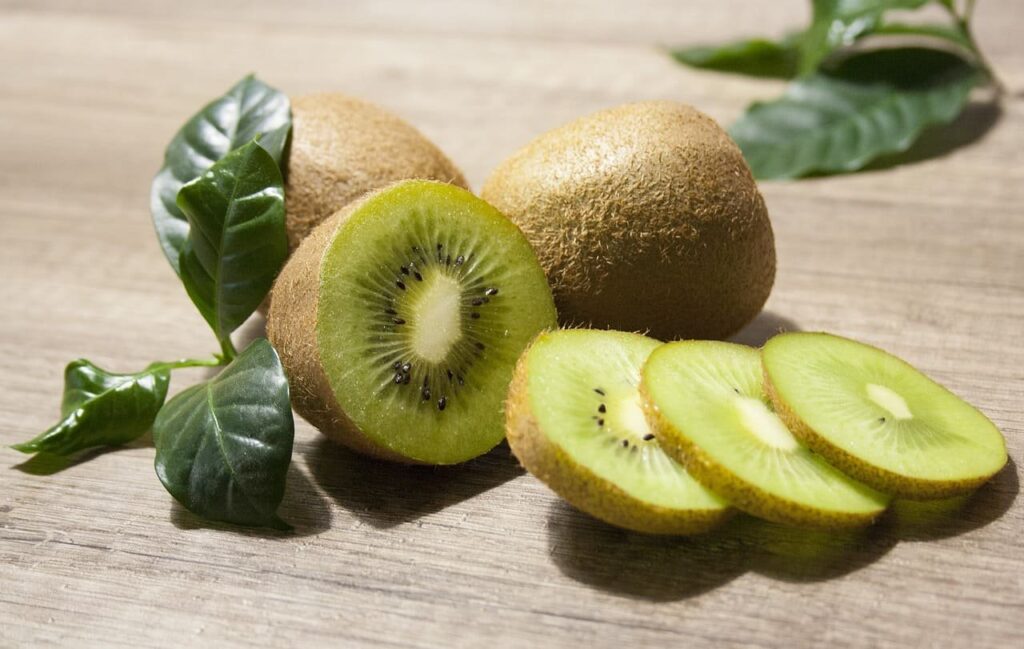
Very Informative👍
Thanks
Really very knowledgeable 😃
Thanks